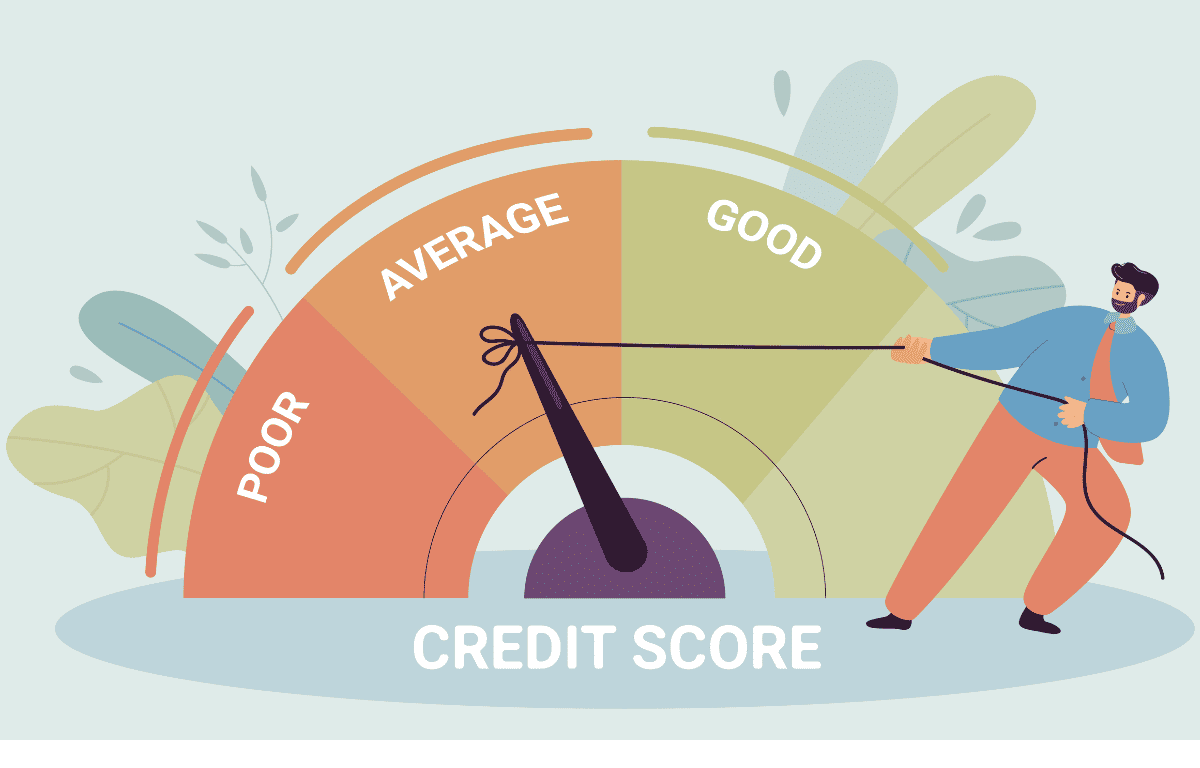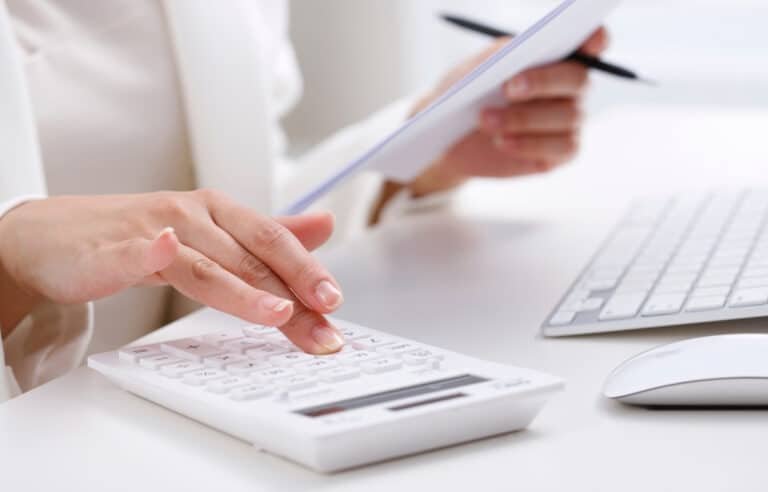What Lowers Your Credit Score? 10 Common Things
Your credit score is a powerful financial indicator that can significantly impact various aspects of your life. Whether you’re applying for a loan, renting an apartment, or even seeking employment, this score plays a huge role in determining your creditworthiness. Understanding the actions that hurt your credit score is how you can maintain a healthy financial standing.
In this article, we’re going to delve into the most common things that can lower your credit score. Even a good credit score, usually between 670 and 799 points, isn’t destruction-free. If you’re aware of all potential pitfalls, it becomes easier to take proactive measures to protect your credit and financial goals.
Related: Best Credit Score Apps
10 Things That Can Lower Your Credit Score
Below are some of the things that can make your credit score to drop.
1. Late Payments
Impact: Up to 180 points
Failing to make timely payments on your credit accounts will signal to lenders and credit bureaus that you’re struggling to manage your debts responsibly. It doesn’t matter whether it’s credit cards, loans, or utility bills.
A single late payment can make your credit score drop. The more frequently it happens, the more severe the impact on your score.
Late payments are reported to the credit bureaus and can remain on your credit report for up to seven years from the original delinquency date. Future lenders can see this negative entry and that may hinder your ability to qualify for new credit or loans.
Credit bureaus typically categorize late payments as 30-day or 60-day late, depending on how long the payment is overdue. A 60-day late payment carries a more negative impact than a 30-day late payment. In some cases, there’s also 90-day and 120-day late payments.
What’s the solution?
True to say, recovering from late payments takes time. Consistent on-time payments over several months can gradually improve your credit score. It demonstrates responsible credit behavior.
Financial troubles are inevitable. And so, if you ever find yourself facing financial difficulties, you can reach out to your creditors proactively. Some of them are lenient and may offer temporary hardship programs or payment arrangements to help you avoid late payments and maintain a positive relationship with them.
The matter of forgetfulness has a solution too. You need to set up automatic payments or calendar reminders to ensure you never miss a due date.
Now, what to do if you miss a payment? The answer is to address it as soon as possible and try to avoid additional late payments in the future. Timely payments are vital for preserving a good credit standing.
2. Defaulting on a Loans or Debts
Impact: Up to 350 points
Defaulting on a loan or debt is a serious financial offense that can have severe and long-lasting consequences on your credit score. The term “defaulting” can vary based on the specific terms of your loan or debt agreement.
But in most cases, defaulting occurs when you fail to fulfill your contractual obligation as agreed with your creditor and miss consecutive payments. The exact number of missed payments required to be considered in default can depend on the contract.
After defaulting, creditors may send your account to collections. The result will be lots of relentless collection calls and letters.
In some cases, creditors may take legal action against you to recover the debt. This approach can lead to court judgments and liens on your assets.
Defaulting is one of the most detrimental events for your credit score and can make it challenging to qualify for new credit in the future. You’ll be limited when it comes to borrowing options. Even if you somehow secure new credit, it could come with high interest rates or unfavorable terms because of your compromised credit history.
What’s the solution?
Recovering from default is challenging. But that doesn’t mean it’s impossible.
The best course of action is to communicate with your creditors as soon as you can and work out a repayment plan or debt settlement. A long-term solution will be to take loans responsibly, budget effectively, and ensure you can meet your payment obligations.
3. High Credit Balances
Impact: Up to 50 points
Carrying significant credit card debt can lead to several negative consequences and make it challenging for you to achieve financial stability. It would mean that you’re borrowing more, earning less, and not doing anything about it.
There’s something known as the credit utilization ratio, which is the percentage of your credit limit that you are currently using. A high credit utilization ratio, especially above 30%, can lower your credit score.
The reason is that your credit utilization ratio is factored in when it comes to credit scoring models. If you have a high credit utilization ratio, it suggests a higher risk of default to lenders.
High credit card balances often lead to substantial interest charges. Paying only the minimum required payment can extend the time it takes you to pay off the debt and result in higher interest costs over time.
Also, as this interest accumulates, it becomes more challenging to make progress in reducing the balance. Large credit card balances exhaust a big portion of your available credit and result in limited access to credit for emergencies.
What’s the solution?
The best way to avoid getting high balances is to refrain from using credit cards excessively until balances are under control. You could find ways to make extra money or use a side hustle app to boost your income and be able to cover bills without getting into debt.
But what if you’re already in the situation?
In that case, pay more than the minimum required payment on your current debt each month to reduce balances faster. Feel free to use the debt avalanche method where you pay minimums and also put any extra cash into high-interest debts.
4. Maxing out Your Credit Cards
Impact: Up to 50 points
If you don’t get rid of your high credit card balances and keep up your borrowing habits, you’ll find yourself with maxed-out credit cards. Maxing out a credit card occurs when you reach the credit limit on the card and have no available credit left to use.
It would mean that you have a 100% credit utilization ratio. This is way above the 30% minimum for avoiding drops in your credit score. And so, the impact is more pronounced if you have multiple cards with high balances.
What happens is that lenders will view you as a higher credit risk. This largely affects your ability to qualify for new credit or loans.
Beyond the credit score that you’ll already have destroyed, maxing out a credit card leaves you with no available credit. In case of any unexpected expenses, you won’t be able to borrow any more to cover them.
What’s the solution?
You need to keep credit card spending within a manageable limit and steer clear of charging more than you can afford to pay off each month. Always aim to keep your credit utilization ratio below 30% across all your credit cards to maintain a positive impact on your credit score. If you’ve maxed out a credit card, it’s wise to prioritize paying off the balance as quickly as possible to reduce interest charges and protect your score.
5. Too Many Unsecured Loans
Impact: Variable
Unsecured loans are loans that are not backed by collateral, such as a car or a house. They are typically granted based on your creditworthiness. Excessive unsecured debt can create financial challenges that could affect your credit.
Accumulating too many unsecured loans can increase your overall debt-to-income ratio. This ratio compares your total monthly debt payments to your monthly income.
A high debt-to-income ratio can be a red flag for lenders. Also, unsecured loans contribute to your credit utilization ratio and if the ratio is high, you’re sabotaging your credit.
On top of it all, you may be faced with high interest rates and thus more payment obligations. Consistently managing multiple loan payments can become challenging and it increases the risk of late or missed payments.
What’s the solution?
If you have multiple unsecured loans, debt consolidation is an opinion where you combine them into a single loan with a lower interest rate. This can make repayment more manageable.
Also, avoid taking on new unsecured loans unless absolutely necessary. Look for alternative financing options or explore ways to reduce expenses.
6. Lack of Diverse Credit Types
Impact: Variable
When it comes to credit scoring models like FICO and VantageScore, the mix of credit types you have is a factor in calculating your credit score. Your credit mix refers to the different types of credit accounts you have, such as credit cards, installment loans (like auto or personal loans), and revolving credit (like credit cards).
Having a diverse mix of credit accounts shows that you’re capable of managing various types of credit responsibly. It also helps the depth of your credit history assessment. The opposite, lacking diverse credit types in your credit profile, can affect your creditworthiness.
What’s the solution?
You need to diversify your credit types. These include credit builder loans (like secured installment loans), secured credit cards, and retail store credit cards.
Now, keep in mind that you should avoid opening too many accounts. It may be counterproductive if it leads to excessive credit inquiries or overextension of credit. Your priority needs to be responsible credit management.
7. Short Credit History
Impact: Not applicable
Short credit history is more of a factor that causes a low credit score and not something that lowers it. Your credit history represents the record of your past credit-related activities, including credit cards, loans, and other debts.
With a short credit history, it means that limited data is available to assess your creditworthiness. Creditors and lenders rely on your credit history to evaluate the risk of lending to you. Without a sufficient credit history, they may be hesitant to extend credit or give credit at higher rates.
Also, for unsecured credit cards or loans, lenders usually prefer borrowers with a more extended and positive credit track record. They need to know that you have the means to pay back.
What’s the solution?
For one, you need to open a secured credit card. This is a card that requires a security deposit.
It’s easier to obtain with limited credit history. Responsible use of a secured card can help build a positive credit history.
You could also ask a family member or friend with a good credit history to add you as an authorized user on their credit card. It’s possible to benefit from someone’s credit history.
On top of that, it would be helpful to pay your bills on time and maintain a low utilization ratio to build credit. It all takes time and consistency but you’ll get there if you adhere to responsible credit practices.
8. Closing Old Credit Cards
Impact: Variable
Now, closing old credit card accounts can have both positive and negative impacts on your finances. It helps to understand the potential consequences before deciding whether or not to close an old credit card account.
The positive impacts are that you reduce the risk of fraudulent activity. Unused accounts are vulnerable to identity theft and any unauthorized use may go unnoticed.
Another advantage is that closing old accounts can simplify your financial management. This occurs by reducing the number of credit cards you need to monitor and manage. Your credit score could use such a benefit.
The negative impact is as follows:
- Lower credit utilization ratio: If you have balances on other cards and close an old card with available credit, your credit utilization ratio may increase, potentially lowering your credit score.
- Shorter credit history length: Closing an old credit card account can shorten your average credit history length. Since credit scoring models prefer longer history, there can be a negative impact on your credit score.
- Lack of credit mix: Having a diverse credit mix has a positive effect on credit scoring. If you close an old credit card account, you reduce the variety of credit types on your credit report and that could lower your credit score.
Your overall credit profile will mostly determine the impact of closing an old credit card account on your credit score. If you have a robust credit history with other active accounts and low credit utilization, you may notice minimal impact. However, if you have a limited credit variety and history or other negative factors, there can be a significant impact.
What’s the solution?
First of all, you have to review your entire credit profile and credit score before deciding to close an old credit card account. If you have a strong credit history, closing the account has a minor effect.
But if your credit is still building, be wise and keep the account open to maintain a longer credit history. On top of that, in case closing an old account would increase your credit utilization, it’s best to leave the account open to keep the ratio low.
It’s also worth noting that there’s a difference between old credit cards that are in use and those you don’t use. Closing an unused card is less detrimental to your credit score than closing an account you actively use.
9. Hard Inquiries from Applying for Credit
Impact: Up to 5 points
Hard inquiries, also known as hard credit pulls, happen when a potential lender or creditor requests a copy of your credit report to check your creditworthiness. These inquiries occur when you apply for credit, such as a credit card, loan, or mortgage.
Now, hard inquiries can have a temporary negative impact on your credit score. Each hard inquiry lowers your credit score by a few points. It usually stays on your credit report for about two years.
Only authorized inquiries made with your consent affect your credit score. Checking your own credit report or score, or inquiries from pre-approved credit offers won’t influence your credit score.
In the case of shopping for the best loan or mortgage rate, credit scoring models can treat multiple inquiries within a specific period (such as 14 to 45 days), as one. The result is minimal credit score impact during the shopping period.
What’s the solution?
While the effect may be small and not long-lasting, you can still reduce it. Do this by being selective when applying for new credit. Avoid unnecessary credit applications so that you have fewer hard inquiries.
Also, when shopping for a loan or mortgage, do so within a short time frame. Don’t forget to regularly review your credit report to ensure that all hard inquiries are legitimate and authorized.
10. Cosigning for Someone
Impact: Variable
Cosigning is a financial commitment where you agree to take responsibility for someone else’s debt if they fail to make payments. It can be an act of kindness to help a family member or friend secure credit. But it also comes with significant risks and potential consequences to your creditworthiness.
You have to know that once you cosign, it’s challenging to remove your name from the loan unless the borrower refinances or pays off the debt (which can also be through your help). In other words, you’re tied to the debt for an extended period.
As a cosigner, you’re legally bound to the debt, just like the primary borrower. If the borrower defaults or misses payments, the creditor has the right to pursue you for the entire outstanding amount.
Moreover, the debt you cosign for will appear on your credit report as if it were your own. Any late payments or defaults will negatively impact your credit score and make it difficult to qualify for credit.
What’s the solution?
Before cosigning, evaluate the borrower’s ability to repay the debt. Pay attention to their financial stability, history of responsible credit management, and communication regarding the payments.
If you’re hesitant, you can recommend that they take secured credit options, like secured credit cards or loans. Because collateral is required the risk to you is lower.
Another way is to avoid cosigning altogether if it’s the best option. All in all, be sure to have open and honest communication with the borrower about their responsibilities and the potential risks.
Wrapping It up
Now that you know some common things that lower or hurt your credit score, it’s time to take action. Avoid them at all costs and pay attention to the shared tips on overcoming them and reducing their impact.
We’ve also looked at how you can handle inevitable credit-lowering actions like hard inquiries. While most inquiries will take 5 or less points, it helps to know that they exist and how you can limit the losses.







